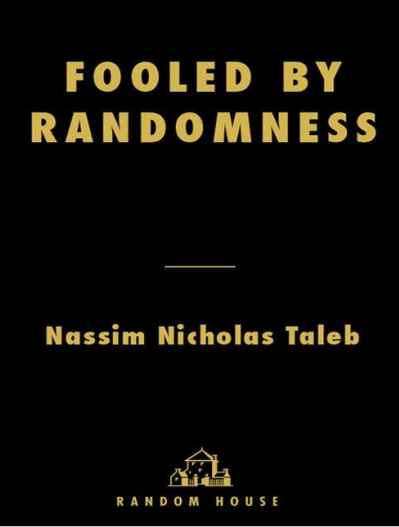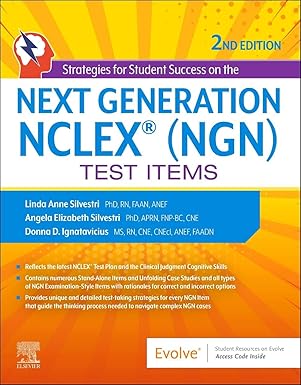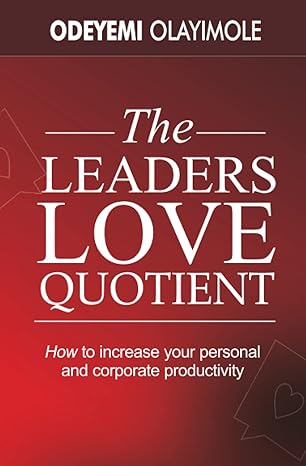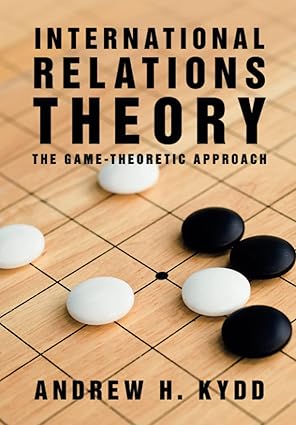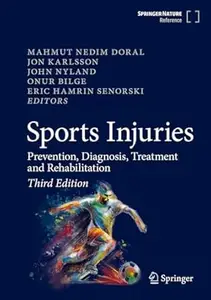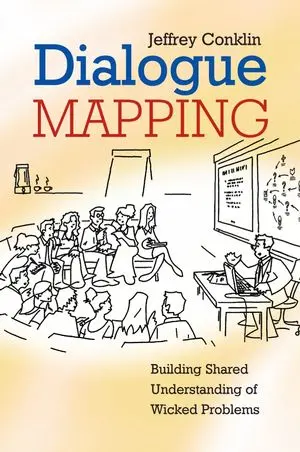This book is the synthesis of, on one hand, the no-nonsense practitioner of uncertainty who spent his professional life trying to resist being fooled by randomness and trick the emotions associated with probabilistic outcomes and, on the other, the aesthetically obsessed, literature-loving human being willing to be fooled by any form of nonsense that is polished, refined, original, and tasteful. I am not capable of avoiding being the fool of randomness; what I can do is confine it to where it brings some aesthetic gratification.
This comes straight from the gut; it is a personal essay primarily discussing its author’s thoughts, struggles, and observations connected to the practice of risk taking, not exactly a treatise, and certainly, god forbid, not a piece of scientific reporting. It was written for fun and it aims to be read (principally) for, and with, pleasure. Much has been written about our biases (acquired or genetic) in dealing with randomness over the past decade. The rules while writing the first edition of this book had been to avoid discussing (a) anything that I did not either personally witness on the topic or develop independently, and (b) anything that I have not distilled well enough to be able to write on the subject with only the slightest effort. Everything that remotely felt like work was out. I had to purge from the text passages that seemed to come from a visit to the library, including the scientific name dropping. I tried to use no quote that did not naturally spring from my memory and did not come from a writer whom I had intimately frequented over the years (I detest the practice of random use of borrowed wisdom—much on that later). Aut tace aut loquere meliora silencio (only when the words outperform silence).
These rules remain intact. But sometimes life requires compromises: Under pressure from friends and readers I have added to the present edition a series of nonintrusive endnotes referring to the related literature. I have also added new material to most chapters, most notably in Chapter 11, which altogether has resulted in an expansion of the book by more than a third.
Adding to the Winner
I hope to make this book organic—by, to use traders’ lingo, “adding to the winner”—and let it reflect my personal evolution instead of holding on to these new ideas and putting them into a new book altogether. Strangely, I gave considerably more thought to some sections of this book after the publication than I had before, particularly in two separate areas: (a) the mechanisms by which our brain sees the world as less, far less, random that it actually is, and (b) the “fat tails,” that wild brand of uncertainty that causes large deviations (rare events explain more and more of the world we live in, but at the same time remain as counterintuitive to us as they were to our ancestors). The second version of this book reflects this author’s drift into becoming a little less of a student of uncertainty (we can learn so little about randomness) and more of a researcher into how people are fooled by it.
Another phenomenon: the transformation of the author by his own book. As I increasingly started living this book after the initial composition, I found luck in the most unexpected of places. It is as if there were two planets: the one in which we actually live and the one, considerably more deterministic, on which people are convinced we live. It is as simple as that: Past events will always look less random than they were (it is called the hindsight bias). I would listen to someone’s discussion of his own past realizing that much of what he was saying was just backfit explanations concocted ex post by his deluded mind. This became at times unbearable: I could feel myself looking at people in the social sciences (particularly conventional economics) and the investment world as if they were deranged subjects. Living in the real world may be painful particularly if one finds statements more informative about the people making them than the intended message: I picked up Newsweek this morning at the dentist’s office and read a journalist’s discussion of a prominent business figure, particularly his ability in “timing moves” and realized how I was making a list of the biases in the journalist’s mind rather than getting the intended information in the article itself, which I could not possibly take seriously. (Why don’t most journalists end up figuring out that they know much less than they think they know? Scientists investigated half a century ago the phenomena of “experts” not learning about their past failings. You can mispredict everything for all your life yet think that you will get it right next time.)
Insecurity and Probability
Insecurity and Probability I believe that the principal asset I need to protect and cultivate is my deep-seated intellectual insecurity. My motto is “my principal activity is to tease those who take themselves and the quality of their knowledge too seriously.” Cultivating such insecurity in place of intellectual confidence may be a strange aim—and one that is not easy to implement. To do so we need to purge our minds of the recent tradition of intellectual certainties. A reader turned pen pal made me rediscover the sixteenth-century French essayist and professional introspector Montaigne. I got sucked into the implications of the difference between Montaigne and Descartes—and how we strayed by following the latter’s quest for certitudes. We surely closed our minds by following Descartes’ model of formal thinking rather than Montaigne’s brand of vague and informal (but critical) judgment. Half a millennium later the severely introspecting and insecure Montaigne stands tall as a role model for the modern thinker. In addition, the man had exceptional courage: It certainly takes bravery to remain skeptical; it takes inordinate courage to introspect, to confront oneself, to accept one’s limitations—scientists are seeing more and more evidence that we are specifically designed by mother nature to fool ourselves. There are many intellectual approaches to probability and risk—“probability” means slightly different things to people in different disciplines. In this book it is tenaciously qualitative and literary as opposed to quantitative and “scientific” (which explains the warnings against economists and finance professors as they tend to firmly believe that they know something, and something useful at that). It is presented as flowing from Hume’s Problem of Induction (or Aristotle’s inference to the general) as opposed to the paradigm of the gambling literature. In this book probability is principally a branch of applied skepticism, not an engineering discipline (in spite of all the self-important mathematical treatment of the subject matter, problems related to the calculus of probability rarely merit to transcend the footnote). How? Probability is not a mere computation of odds on the dice or more complicated variants; it is the acceptance of the lack of certainty in our knowledge and the development of methods for dealing with our ignorance. Outside of textbooks and casinos, probability almost never presents itself as a mathematical problem or a brain teaser. Mother nature does not tell you how many holes there are on the roulette table, nor does she deliver problems in a textbook way (in the real world one has to guess the problem more than the solution). In this book, considering that alternative outcomes could have taken place, that the world could have been different, is the core of probabilistic thinking. As a matter of fact, I spent all my career attacking the quantitative use of probability. While Chapters13 and 14 (dealing with skepticism and stoicism) are to me the central ideas of the book, most people focused on the examples of miscomputation of probability in Chapter 11 (clearly and by far the least original chapter of the book, one in which I compressed all the literature on probability biases). In addition, while we may have some understanding of the probabilities in the hard sciences, particularly in physics, we don’t have much of a clue in the social “sciences” like economics, in spite of the fanfares of experts.
Vindicating (Some) Readers
I have tried to make the minimum out of my occupation of mathematical trader. The fact that I operate in the markets serves only as an inspiration—it does not make this book (as many thought it was) a guide to market randomness any more than the Iliad should be interpreted as a military instruction manual. Only three out of fourteen chapters have a financial setting. Markets are a mere special case of randomness traps—but they are by far the most interesting as luck plays a very large role in them (this book would have been considerably shorter if I were a taxidermist or a translator of chocolate labels). Furthermore, the kind of luck in finance is of the kind that nobody understands but most operators think they understand, which provides us a magnification of the biases. I have tried to use my market analogies in an illustrative way as I would in a dinner conversation with, say, a cardiologist with intellectual curiosity (I used as a model my second�generation friend Jacques Merab).
I received large quantities of electronic mail on the first version of the book, which can be an essayist’s dream as such dialectic provides ideal conditions for the rewriting of the second version. I expressed my gratitude by answering (once) each one of them. Some of the answers have been inserted back into the text in the different chapters. Being often seen as an iconoclast I was looking forward to getting the angry letters of the type “who are you to judge Warren Buffett” or “you are envious of his success”; instead it was disappointing to see most of the trashing going anonymously to amazon.com (there is no such thing as bad publicity: Some people manage to promote your work by insulting it). The consolation for the lack of attacks was in the form of letters from people who felt vindicated by the book. The most rewarding letters were the ones from people who did not fare well in life, through no fault of their own, who used the book as an argument with their spouse to explain that they were less lucky (not less skilled) than their brother-in-law. The most touching letter came from a man in Virginia who within a period of a few months lost his job, his wife, his fortune, was put under investigation by the redoubtable Securities and Exchange Commission, and progressively felt good for acting stoically. A correspondence with a reader who was hit with a black swan, the unexpected large-impact random event (the loss of a baby) caused me to spend some time dipping into the literature on adaptation after a severe random event (not coincidentally also dominated by Daniel Kahneman, the pioneer of the ideas on irrational behavior under uncertainty). I have to confess that I never felt really particularly directly of service to anyone being a trader (except myself); it felt elevating and useful being an essayist.
All or None
A few confusions with the message in this book. Just as our brain does not easily make out probabilistic shades (it goes for the oversimplifying “all-or-none”), it was hard to explain that the idea here was that “it is more random than we think” rather than “it is all random.” I had to face the “Taleb, as a skeptic, thinks everything is random and successful people are just lucky.” The Fooled by Randomness symptom even affected a well-publicized Cambridge Union Debate as my argument “Most City Hotshots are Lucky Fools” became “All City Hotshots are Lucky Fools” (clearly I lost the debate to the formidable Desmond Fitzgerald in one of the most entertaining discussions in my life—I was even tempted to switch sides!). The same delusion of mistaking irreverence for arrogance (as I noticed with my message) makes people confuse skepticism for nihilism.
Let me make it clear here: Of course chance favors the prepared! Hard work, showing up on time, wearing a clean (preferably white) shirt, using deodorant, and some such conventional things contribute to success—they are certainly necessary but may be insufficient as they do not cause success. The same applies to the conventional values of persistence, doggedness and perseverance: necessary, very necessary. One needs to go out and buy a lottery ticket in order to win. Does it mean that the work involved in the trip to the store caused the winning? Of course skills count, but they do count less in highly random environments than they do in dentistry. No, I am not saying that what your grandmother told you about the value of work ethics is wrong! Furthermore, as most successes are caused by very few “windows of opportunity,” failing to grab one can be deadly for one’s career. Take your luck!
Notice how our brain sometimes gets the arrow of causality backward. Assume that good qualities cause success; based on that assumption, even though it seems intuitively correct to think so, the fact that every intelligent, hardworking, persevering person becomes successful does not imply that every successful person is necessarily an intelligent, hardworking, persevering person (it is remarkable how such a primitive logical fallacy—affirming the consequent —can be made by otherwise very intelligent people, a point I discuss in this edition as the “two systems of reasoning” problem).
There is a twist in research on success that has found its way into the bookstores under the banner of advice on: “these are the millionaires’ traits that you need to have if you want to be just like those successful people.” One of the authors of the misguided The Millionaire Next Door (that I discuss in Chapter 8) wrote another even more foolish book called The Millionaire Mind. He observes that in the representative cohort of more than a thousand millionaires whom he studied most did not exhibit high intelligence in their childhood and infers that it is not your endowment that makes you rich—but rather hard work. From this, one can naively infer that chance plays no part in success. My intuition is that if millionaires are close in attributes to the average population, then I would make the more disturbing interpretation that it is because luck played a part. Luck is democratic and hits everyone regardless of original skills. The author notices variations from the general population in a few traits like tenacity and hard work: another confusion of the necessary and the causal. That all millionaires were persistent, hardworking people does not make persistent hard workers become millionaires: Plenty of unsuccessful entrepreneurs were persistent, hardworking people. In a textbook case of naive empiricism, the author also looked for traits these millionaires had in common and figured out that they shared a taste for risk taking. Clearly risk taking is necessary for large success— but it is also necessary for failure. Had the author done the same study on bankrupt citizens he would certainly have found a predilection for risk taking.
I was asked to “back up the claims” in the book with the “supply of data,” graphs, charts, diagrams, plots, tables, numbers, recommendations, time series, etc., by some readers (and by me-too publishers before I was lucky to find Texere). This text is a series of logical thought experiments, not an economics term paper; logic does not require empirical verification (again there is what I call a “round-trip fallacy”: It is a mistake to use, as journalists and some economists do, statistics without logic, but the reverse does not hold: It is not a mistake to use logic without statistics). If I write that I doubt that my neighbor’s success is devoid of some measure, small or large, of luck, owing to the randomness in his profession, I do not need to “test” it—the Russian roulette thought experiment suffices. All I need is to show that there exists an alternative explanation to the theory that he is a genius. My approach is to manufacture a cohort of intellectually challenged persons and show how a small minority can evolve into successful businessmen—but these are the ones who will be visible. I am not saying that Warren Buffett is not skilled; only that a large population of random investors will almost necessarily produce someone with his track records just by luck.
Missing a Hoax
I was also surprised at the fact that in spite of the book’s aggressive warning against media journalism I was invited to television and radio shows in both North America and Europe (including a hilarious dialogue de sourds on a Las Vegas radio station where the interviewer and I were running two parallel conversations). Nobody protected me from myself and I accepted the interviews. Strangely, one needs to use the press to communicate the message that the press is toxic. I felt like a fraud coming up with vapid sound bites, but had fun at it.
It may be that I was invited because the mainstream media interviewers did not read my book or understand the insults (they don’t “have the time” to read books) and the nonprofit ones read it too well and felt vindicated by it. I have a few anecdotes: A famous television show was told that “this guy Taleb believes that stock analysts are just random forecasters” so they seemed eager to have me present my ideas on the program. However, their condition was that I make three stock recommendations to prove my “expertise.” I didn’t attend and missed the opportunity for a great hoax by discussing three stocks selected randomly and fitting a well-sounding explanation to my selection.
On another television show I mentioned that “people think that there is a story when there is none” as I was discussing the random character of the stock market and the backfit logic one always sees in events after the fact. The anchor immediately interjected: “There was a story about Cisco this morning. Can you comment on that?” The best: When invited to an hour-long discussion on a financial radio show (they had not read Chapter 11), I was told a few minutes before to refrain from discussing the ideas in this book because I was invited to talk about trading and not about randomness (another hoax opportunity certainly, but I was too unprepared for it and walked out before the show started). Most journalists do not take things too seriously: After all, this business of journalism is about pure entertainment, not a search for truth, particularly when it comes to radio and television. The trick is to stay away from those who do not seem to know that they are just entertainers (like George Will, who will appear in Chapter 2) and actually believe that they are thinkers.
Another problem was in the interpretation of the message in the media: This guy Nassim thinks that markets are random, hence they are going lower, which made me the unwilling bearer of catastrophic messages. Black swans, those rare and unexpected deviations, can be both good and bad events.
However, media journalism is less standardized than it appears; it attracts a significant segment of thoughtful people who manage to extricate themselves from the commercial sound bite–driven system and truly care about the message rather than just catching the public’s attention. One naive observation from my conversations with Kojo Anandi (NPR), Robin Lustig (BBC), Robert Scully (PBS), and Brian Lehrer (WNYC) is that the nonprofit journalist is altogether another intellectual breed. Casually, the quality of the discussion correlates inversely with the luxury of the studios: WNYC, where I felt that Brian Lehrer was making the greatest effort at getting into the arguments, operates out of the shabbiest offices I have seen this side of Kazakhstan.
One final comment on the style. I elected to keep the style of this book as idiosyncratic as it was in the first edition. Homo sum, good and bad. I am fallible and see no reason to hide my minor flaws if they are part of my personality no more than I feel the need to wear a wig when I have my picture taken or borrow someone else’s nose when I show my face. Almost all the book editors who read the draft recommended changes at the sentence level (to make my style “better”) and in the structure of the text (in the organization of chapters); I ignored almost all of them and found out that none of the readers thought them necessary—as a matter of fact, I find that injecting the personality of the author (imperfections included) enlivens the text. Does the book industry suffer from the classical “expert problem” with the buildup of rules of thumb that do not have empirical validity? More than half a million readers later I am discovering that books are not written for book editors.
چکیده فارسی
این کتاب از یک سو ترکیبی است از تمرینکنندهی بیمعنی عدم قطعیت که زندگی حرفهای خود را صرف مقاومت در برابر فریب خوردن توسط تصادفی و فریب احساسات مرتبط با نتایج احتمالی کرد. و از سوی دیگر، انسان وسواس زیبایی شناسی و ادبیات دوست که مایل است فریب هر نوع مزخرفی را که صیقلی، تصفیه شده، بدیع و با ذوق است، بخورد. من قادر به اجتناب از احمق تصادفی نیستم. کاری که من می توانم انجام دهم این است که آن را به جایی محدود کنم که رضایت زیبایی شناختی به همراه دارد.
این مستقیماً از روده می آید. این یک مقاله شخصی است که عمدتاً در مورد افکار، مبارزات و مشاهدات نویسنده آن مرتبط با عمل ریسک پذیری بحث می کند، دقیقاً یک رساله نیست، و قطعاً، خدای ناکرده، یک گزارش علمی نیست. این برای سرگرمی نوشته شده است و هدف آن خواندن (اصولا) برای و با لذت است. در دهه گذشته در مورد سوگیری های ما (اکتسابی یا ژنتیکی) در برخورد با تصادفی، مطالب زیادی نوشته شده است. قوانین در هنگام نوشتن اولین نسخه این کتاب این بود که از بحث کردن (الف) هر چیزی که شخصاً در مورد موضوع شاهد نبودم یا به طور مستقل توسعه نداده بودم، و (ب) هر چیزی که به اندازه کافی خوب تقطیر نکردهام که بتوانم بنویسم، اجتناب شود. در مورد موضوع فقط با کوچکترین تلاش. هر چیزی که از راه دور احساس می کرد کار تمام شده بود. مجبور شدم از قسمت های متنی که به نظر می رسید از بازدید از کتابخانه آمده بود پاک کنم، از جمله حذف نام علمی. سعی کردم از هیچ نقل قولی استفاده نکنم که به طور طبیعی از حافظه من نشات نگرفته باشد و از نویسنده ای که در طول سال ها به طور صمیمی با او ملاقات کرده ام نیامده باشد (من از استفاده تصادفی از حکمت عاریتی متنفرم - البته بعداً). Aut tace aut loquere meliora silencio (فقط زمانی که کلمات بهتر از سکوت باشند).
این قوانین دست نخورده باقی می مانند. اما گاهی اوقات زندگی مستلزم سازش است: تحت فشار دوستان و خوانندگان من به نسخه حاضر مجموعه ای از یادداشت های پایانی غیر مزاحم با اشاره به ادبیات مرتبط اضافه کرده ام. من همچنین مطالب جدیدی را به اکثر فصل ها اضافه کرده ام، به ویژه در فصل 11، که در مجموع منجر به گسترش بیش از یک سوم کتاب شده است.
افزودن به برنده
امیدوارم این کتاب را ارگانیک کنم - با استفاده از زبان معامله گران، "افزودن به برنده" - و اجازه دهم به جای نگه داشتن این ایده های جدید، تکامل شخصی من را منعکس کند. و قرار دادن آنها در یک کتاب جدید به طور کلی. عجیب است که من بعد از انتشار به طور قابل توجهی بیشتر از قبل به برخی از بخشهای این کتاب فکر کردم، به ویژه در دو زمینه جداگانه: (الف) مکانیسمهایی که مغز ما از طریق آن جهان را کمتر، بسیار کمتر، تصادفی میبیند. و (ب) "دم چاق"، آن نام وحشی عدم اطمینان که باعث انحرافات بزرگ می شود (رویدادهای نادری که بیشتر و بیشتر از دنیایی را که در آن زندگی می کنیم توضیح می دهد، اما در عین حال برای ما به همان اندازه که برای اجدادمان غیرمعمول بود باقی می ماند. ). نسخه دوم این کتاب منعکس کننده گرایش این نویسنده به سمت تبدیل شدن به یک دانش آموز عدم قطعیت (ما می توانیم خیلی کم در مورد تصادفی بودن بیاموزیم) و بیشتر به یک محقق در مورد اینکه چگونه مردم توسط آن فریب داده می شوند، می شود.
پدیده دیگر: دگرگونی نویسنده توسط کتاب خودش. همانطور که من به طور فزاینده ای زندگی این کتاب را پس از نگارش اولیه شروع کردم، در غیرمنتظره ترین مکان ها شانس پیدا کردم. گویی دو سیاره وجود دارد: سیارهای که در آن زندگی میکنیم و سیارهای که به طور قابل ملاحظهای قطعیتر است، که مردم متقاعد شدهاند که ما در آن زندگی میکنیم. به همین سادگی است: رویدادهای گذشته همیشه کمتر تصادفی به نظر میرسند (به آن سوگیری پسبینی میگویند). من به بحث کسی در مورد گذشته خودش گوش میدادم و متوجه میشدم که بیشتر حرفهای او فقط توضیحاتی بود که قبلاً توسط ذهن فریب خوردهاش ساخته شده بود. این گاهی غیرقابل تحمل میشد: میتوانستم احساس کنم که به افرادی که در علوم اجتماعی (به ویژه اقتصاد متعارف) و دنیای سرمایهگذاری هستند، به گونهای نگاه میکنم که گویی موضوعاتی آشفته هستند. زندگی در دنیای واقعی ممکن است دردناک باشد، به ویژه اگر جملاتی را بیشتر از پیام مورد نظر در مورد افرادی که آنها را بیان می کنند، آموزنده بدانیم: من امروز صبح نیوزویک را از مطب دندانپزشکی گرفتم و بحث روزنامه نگاری را درباره یک شخصیت برجسته تجاری خواندم، به ویژه توانایی او در "زمان بندی حرکت می کند" و متوجه شدم که چگونه به جای دریافت اطلاعات مورد نظر در خود مقاله، که نمی توانستم آن را جدی بگیرم، فهرستی از سوگیری ها در ذهن روزنامه نگار تهیه می کردم. (چرا بیشتر روزنامهنگاران در نهایت متوجه نمیشوند که خیلی کمتر از آنچه فکر میکنند میدانند؟ دانشمندان نیم قرن پیش در مورد پدیدههایی که «متخصصان» از شکستهای گذشتهشان اطلاعی نداشتند، تحقیق کردند. فکر کنید دفعه بعد آن را درست دریافت خواهید کرد.)
ناامنی و احتمال
ناامنی و احتمال من معتقدم که دارایی اصلی که باید از آن محافظت و پرورش دهم، ناامنی فکری عمیق من است. شعار من این است: "فعالیت اصلی من این است که کسانی را که خود و کیفیت دانششان را بیش از حد جدی می گیرند، مسخره کنم." پرورش چنین ناامنی به جای اعتماد فکری ممکن است هدف عجیبی باشد – و اجرای آن آسان نیست. برای این کار باید ذهن خود را از سنت اخیر یقینات فکری پاک کنیم. یکی از خوانندگانی که به رفیق قلم تبدیل شده بود، مرا وادار کرد که مقاله نویس فرانسوی قرن شانزدهم و درون نگر حرفه ای مونتین را دوباره کشف کنم. من متوجه مفاهیم تفاوت بین مونتن و دکارت شدم – و اینکه چگونه ما با دنبال کردن جست و جوی دومی برای قطعیت ها به اشتباه افتادیم. ما مطمئناً با پیروی از مدل تفکر رسمی دکارت به جای قضاوت مبهم و غیررسمی (اما انتقادی) مونتن، ذهن خود را بسته ایم. نیم هزاره بعد، مونتنی به شدت درونگرا و ناامن به عنوان یک الگو برای متفکر مدرن ایستاده است. به علاوه، مرد شجاعت استثنایی داشت: شکاک ماندن قطعاً شجاعت می خواهد. درون نگری، رویارویی با خود، پذیرش محدودیتهای خود شجاعت بیاندازه میطلبد – دانشمندان شواهد بیشتری را میبینند که نشان میدهد ما بهطور خاص توسط طبیعت مادر طراحی شدهایم تا خودمان را گول بزنیم. رویکردهای فکری زیادی در مورد احتمال و ریسک وجود دارد - "احتمال" برای افراد در رشته های مختلف به معنای کمی متفاوت است. در این کتاب، این کتاب بهطور سرسختانه کیفی و ادبی است در مقابل کمی و «علمی» (که هشدارها علیه اقتصاددانان و اساتید مالی را توضیح میدهد، زیرا آنها معتقدند که چیزی را میدانند و در آن چیز مفیدی دارند). آن را برخاسته از مسئله استقراء هیوم (یا استنباط ارسطو به کلی) در مقابل پارادایم ادبیات قمار ارائه می شود. در این کتاب، احتمال اصولاً شاخهای از شکگرایی کاربردی است، نه یک رشته مهندسی (علیرغم تمام بررسیهای ریاضی خود مهم موضوع موضوع، مسائل مربوط به حساب احتمالات به ندرت شایستگی فراتر رفتن از پاورقی را دارند). چگونه؟ احتمال فقط محاسبه شانس روی تاس یا انواع پیچیده تر نیست. این پذیرش عدم اطمینان در دانش ما و توسعه روش هایی برای مقابله با جهل ما است. خارج از کتابهای درسی و کازینو، احتمال تقریباً هرگز خود را به عنوان یک مشکل ریاضی یا یک بازی فکری نشان نمیدهد. مادر طبیعت به شما نمیگوید چند سوراخ روی میز رولت وجود دارد، و همچنین مسائل را به روش کتاب درسی ارائه نمیکند (در دنیای واقعی بیشتر باید مشکل را حدس زد تا راهحل). در این کتاب، با توجه به اینکه ممکن است نتایج جایگزینی اتفاق بیفتد، اینکه جهان می توانست متفاوت باشد، هسته اصلی تفکر احتمالی است. در واقع، من تمام عمرم را صرف حمله به استفاده کمی از احتمال کردم. در حالی که فصلهای 13 و 14 (که با شک و رواقی سروکار دارند) ایدههای اصلی کتاب برای من هستند، اکثر مردم بر مثالهایی از محاسبه اشتباه احتمال در فصل 11 تمرکز کردند (به وضوح و با اختلاف کمترین فصل کتاب، فصلی که در آن من تمام ادبیات مربوط به سوگیری های احتمالی را فشرده کردم). علاوه بر این، در حالی که ممکن است تا حدودی از احتمالات در علوم سخت، به ویژه در فیزیک، درک داشته باشیم، با وجود هیاهوهای متخصصان، سرنخی زیادی در «علوم» اجتماعی مانند اقتصاد نداریم.
بررسی (برخی) خوانندگان
من سعی کرده ام از شغل خود در زمینه ریاضیات حداقل استفاده کنم. این واقعیت که من در بازارها فعالیت می کنم فقط به عنوان یک الهام عمل می کند - این کتاب (آنطور که بسیاری فکر می کردند) را به عنوان راهنمای تصادفی بودن بازار تبدیل نمی کند بیش از آن که ایلیاد باید به عنوان یک دستورالعمل نظامی تفسیر شود. فقط سه فصل از چهارده فصل دارای شرایط مالی است. بازارها فقط یک مورد خاص از تلههای تصادفی هستند - اما آنها بسیار جالبترین هستند زیرا شانس نقش بسیار زیادی در آنها بازی میکند (اگر من یک تاکسیدرمیست یا مترجم برچسبهای شکلات بودم، این کتاب بسیار کوتاهتر بود). بعلاوه، نوع شانس در امور مالی از نوعی است که هیچ کس آن را درک نمی کند، اما اکثر اپراتورها فکر می کنند که آنها را درک می کنند، که به ما بزرگنمایی سوگیری ها را ارائه می دهد. سعی کردهام از قیاسهای بازارم به شکلی گویا استفاده کنم، همانطور که در یک گفتگوی شام با مثلاً یک متخصص قلب با کنجکاوی فکری (از دوست نسل دومم ژاک مراب به عنوان الگو استفاده کردم).
من در نسخه اول کتاب مقادیر زیادی نامه الکترونیکی دریافت کردم که می تواند رویای یک مقاله نویس باشد زیرا چنین دیالکتیکی شرایط ایده آلی را برای بازنویسی نسخه دوم فراهم می کند. من با پاسخ (یک بار) به هر یک از آنها تشکر کردم. برخی از پاسخ ها در فصل های مختلف دوباره در متن درج شده اند. من که اغلب به عنوان یک شمایل شکن دیده می شدم مشتاقانه منتظر دریافت نامه های خشم آلود از نوع "تو کی هستی که وارن بافت را قضاوت کنی" یا "تو به موفقیت او حسادت می کنی" بودم. در عوض ناامیدکننده بود که دیدم بیشتر سطل زباله ها به صورت ناشناس به amazon.com می رود (چیزی به نام تبلیغات بد وجود ندارد: برخی از افراد موفق می شوند با توهین کار شما را تبلیغ کنند). تسلیت عدم حمله به صورت نامههایی از سوی افرادی بود که احساس میکردند از این کتاب تبرئه شدهاند. پربارترین نامه ها، نامه هایی از سوی افرادی بود که بدون تقصیر خودشان در زندگی موفق نبودند و از این کتاب به عنوان مشاجره با همسرشان استفاده کردند تا توضیح دهند که نسبت به برادرشان خوش شانس تر (نه مهارت کمتر) هستند. در قانون. تکان دهنده ترین نامه از سوی مردی در ویرجینیا ارسال شد که در مدت چند ماه شغل خود را از دست داد، همسرش و دارایی خود را توسط کمیسیون بورس و اوراق بهادار مورد بررسی قرار داد و به تدریج احساس خوبی برای رفتار رواقی کرد. مکاتبه با خوانندهای که با یک قو سیاه ضربه خورده بود، رویداد تصادفی غیرمنتظره با ضربه بزرگ (از دست دادن یک نوزاد) باعث شد که پس از یک رویداد تصادفی شدید (که تصادفاً هم بر آن غالب نبود، مدتی را به ادبیات اقتباسی بپردازم. دانیل کانمن، پیشگام ایده های رفتار غیرمنطقی در شرایط عدم اطمینان). باید اعتراف کنم که من هرگز به طور مستقیم به کسی که یک تاجر است (به جز خودم) خدمت خاصی احساس نکردم. مقاله نویس بودن بسیار عالی و مفید بود.
همه یا هیچ
چند اشتباه در پیام این کتاب. درست همانطور که مغز ما به راحتی سایههای احتمالی را تشخیص نمیدهد (به عبارت سادهتر «همه یا هیچ» میپردازد)، توضیح اینکه ایده در اینجا این بود که «تصادفیتر از آن چیزی است که فکر میکنیم» به جای «آن» مشکل بود. همه تصادفی است.» من مجبور شدم با این جمله روبرو شوم که "طالب به عنوان یک شکاک فکر می کند همه چیز تصادفی است و افراد موفق فقط خوش شانس هستند." علامت تصادفی فریب خورده حتی بر مناظره اتحادیه کمبریج که به خوبی تبلیغ شده بود، تأثیر گذاشت زیرا استدلال من «بیشتر عکسهای داغ شهر احمقهای خوش شانس هستند» به «همه عکسهای داغ شهر احمقهای خوش شانس هستند» تبدیل شد (معلوم است که من بحث را به دزموند فیتزجرالد بزرگ در یکی از بهترینها باختم. بحث های سرگرم کننده در زندگی من - حتی وسوسه شدم که طرف را عوض کنم!). همین توهم اشتباه گرفتن بیاحترامی با تکبر (همانطور که در پیامم متوجه شدم) باعث میشود مردم شکگرایی را با پوچگرایی اشتباه بگیرند.
اجازه دهید اینجا روشن کنم: البته شانس به نفع آماده است! کار سخت، به موقع حاضر شدن، پوشیدن یک پیراهن تمیز (ترجیحاً سفید)، استفاده از دئودورانت، و برخی از چیزهای معمولی از این دست به موفقیت کمک میکنند - مطمئناً ضروری هستند، اما ممکن است ناکافی باشند، زیرا باعث موفقیت نمیشوند. همین امر در مورد ارزش های متعارف پشتکار، سرسختی و استقامت صدق می کند: ضروری، بسیار ضروری. برای برنده شدن باید بیرون برود و یک بلیط بخت آزمایی بخرد. آیا به این معنی است که کار در سفر به فروشگاه باعث برنده شدن شده است؟ البته مهارت ها مهم هستند، اما در محیط های بسیار تصادفی کمتر از دندانپزشکی به حساب می آیند. نه، نمی گویم آنچه مادربزرگتان در مورد ارزش اخلاق کاری به شما گفته اشتباه است! علاوه بر این، از آنجایی که بیشتر موفقیتها ناشی از «پنجرههای فرصت» بسیار اندک است، شکست در به دست آوردن یک فرد میتواند برای حرفهاش مرگبار باشد. شانس خود را بگیرید!
توجه کنید که چگونه مغز ما گاهی اوقات پیکان علیت را به عقب می برد. فرض کنید که ویژگی های خوب باعث موفقیت می شوند. بر اساس این فرض، اگرچه شهودی به نظر می رسد چنین فکری درست باشد، اما این واقعیت که هر فرد باهوش، سخت کوش و با پشتکار موفق می شود، به این معنا نیست که هر فرد موفقی لزوماً فردی باهوش، سخت کوش و با پشتکار است (قابل توجه است که چگونه چنین فردی مغالطه منطقی بدوی - که نتیجه آن را تأیید می کند - می تواند توسط افراد بسیار باهوش صورت گیرد، نکته ای که در این نسخه به عنوان مسئله "دو سیستم استدلال" مورد بحث قرار می دهم).
تحقیقاتی در مورد موفقیت وجود دارد که به کتابفروشیها راه پیدا کرده است. درست مثل آن افراد موفق باشید.» یکی از نویسندگان کتاب گمراه «میلیونر همسایه» (که در فصل 8 به آن پرداختم) کتاب احمقانهتر دیگری به نام «ذهن میلیونر» نوشت. او مشاهده میکند که در گروه نماینده بیش از هزار میلیونر که بیشتر مورد مطالعه قرار گرفتهاند، در کودکی هوش بالایی از خود نشان ندادهاند و استنباط میکند که این موهبت شما نیست که شما را ثروتمند میکند، بلکه کار سخت است. از این، می توان ساده لوحانه استنباط کرد که شانس هیچ نقشی در موفقیت ندارد. شهود من این است که اگر میلیونرها از نظر خصوصیات به میانگین جمعیت نزدیک باشند، آنگاه تعبیر نگرانکنندهتری را انجام میدهم که به این دلیل است که شانس نقش داشته است. شانس دموکراتیک است و بدون توجه به مهارت های اصلی به همه ضربه می زند. نویسنده به تغییراتی از جمعیت عمومی در چند ویژگی مانند سرسختی و سخت کوشی توجه می کند: خلط دیگری از ضروری و علت. اینکه همه میلیونرها پیگیر بودند، افراد سخت کوش باعث نمی شود که کارگران سخت کوش میلیونر شوند: بسیاری از کارآفرینان ناموفق، افراد سختکوش و پیگیر بودند. در کتاب درسی تجربه گرایی ساده لوحانه، نویسنده همچنین به دنبال ویژگی های مشترک این میلیونرها بود و متوجه شد که آنها ذائقه ریسک پذیری را دارند. واضح است که ریسک کردن برای موفقیت بزرگ ضروری است – اما برای شکست نیز لازم است. اگر نویسنده همان مطالعه را روی شهروندان ورشکسته انجام می داد، مطمئناً تمایلی به ریسک پذیری پیدا می کرد.
از من خواسته شد که از ادعاهای موجود در کتاب با "تامین داده ها"، نمودارها، نمودارها، نمودارها، نمودارها، جداول، اعداد، توصیه ها، سری های زمانی، "پشتیبان گیری" کنم. و غیره، توسط برخی از خوانندگان (و توسط من و ناشران قبل از اینکه من خوش شانس باشم که Texere را پیدا کنم). این متن مجموعه ای از آزمایش های فکری منطقی است، نه یک مقاله ترمی اقتصاد. منطق نیازی به تأیید تجربی ندارد (دوباره چیزی وجود دارد که من آن را "اشتباه رفت و برگشت" می نامم: استفاده از آمار بدون منطق، همانطور که روزنامه نگاران و برخی از اقتصاددانان انجام می دهند، اشتباه است، اما عکس آن صادق نیست: این یک اشتباه نیست. اشتباه در استفاده از منطق بدون آمار). اگر بنویسم که شک دارم که موفقیت همسایهام به دلیل تصادفی بودن حرفهاش از شانس، کوچک یا بزرگ، خالی باشد، نیازی به «آزمایش» آن ندارم – آزمایش فکری رولت روسی کافی است. تنها چیزی که من نیاز دارم این است که نشان دهم که توضیح دیگری برای این نظریه وجود دارد که او نابغه است. رویکرد من این است که گروهی از افراد دارای چالش فکری بسازم و نشان دهم که چگونه یک اقلیت کوچک می توانند به تاجران موفق تبدیل شوند – اما اینها کسانی هستند که قابل مشاهده خواهند بود. من نمی گویم که وارن بافت ماهر نیست. فقط این است که جمعیت زیادی از سرمایه گذاران تصادفی تقریباً لزوماً شخصی را با سوابق خود فقط با شانس تولید می کنند.
از دست دادن یک حقه
من همچنین از این واقعیت متعجب شدم که علیرغم هشدار تهاجمی کتاب به روزنامه نگاری رسانه ای، به برنامه های تلویزیونی و رادیویی در آمریکای شمالی و اروپا دعوت شدم (از جمله یک گفتگوی خنده دار). در یکی از ایستگاه های رادیویی لاس وگاس که من و مصاحبه کننده دو مکالمه موازی داشتیم). هیچ کس از من محافظت نکرد و من مصاحبه ها را پذیرفتم. عجیب است که باید از مطبوعات برای انتقال پیام سمی بودن مطبوعات استفاده کرد. احساس میکردم کلاهبردار با صدایی بیحساب میآید، اما از آن لذت بردم.
ممکن است به این دلیل دعوت شدهام که مصاحبهگران رسانههای اصلی کتاب من را نخواندهاند یا توهینها را درک نکردهاند (آنها «وقت ندارند» کتاب بخوانند) و سازمان غیرانتفاعی آنهایی که آن را خیلی خوب می خوانند و احساس می کنند که از آن اثبات شده اند. من چند حکایت دارم: به یک برنامه تلویزیونی معروف گفته شد که "این پسر طالب معتقد است که تحلیلگران سهام فقط پیش بینی کننده های تصادفی هستند" بنابراین به نظر می رسید که آنها مشتاق بودند که من ایده هایم را در برنامه ارائه دهم. با این حال، شرط آنها این بود که من سه توصیه سهام را برای اثبات "تخصص" خود ارائه دهم. من شرکت نکردم و با بحث در مورد سه سهامی که بهطور تصادفی انتخاب شدهاند و توضیح مناسبی برای انتخابم ارائه کردم، فرصت یک فریب بزرگ را از دست دادم.
در یک برنامه تلویزیونی دیگر به این موضوع اشاره کردم که "مردم فکر می کنند داستانی وجود دارد در حالی که هیچ داستانی وجود ندارد" همانطور که من در مورد شخصیت تصادفی بازار سهام و منطقی که همیشه می بینیم بحث می کردم. در حوادث پس از واقع مجری بلافاصله مداخله کرد: «امروز صبح یک داستان در مورد سیسکو وجود داشت. میتوانی آن را توضیح بدهی؟" بهترین ها: هنگامی که به یک بحث ساعتی در یک برنامه رادیویی مالی دعوت شدم (آنها فصل 11 را نخوانده بودند)، چند دقیقه قبل به من گفته شد که از بحث در مورد ایده های این کتاب خودداری کنم زیرا از من دعوت شده بود در مورد معاملات و تجارت صحبت کنم. نه در مورد تصادفی بودن (مطمئناً یک فرصت فریبکاری دیگر، اما من برای آن خیلی ناآماده بودم و قبل از شروع نمایش بیرون رفتم). بیشتر روزنامهنگاران چیزها را خیلی جدی نمیگیرند: به هر حال، این تجارت روزنامهنگاری سرگرمی خالص است، نه جستجوی حقیقت، بهویژه وقتی صحبت از رادیو و تلویزیون میشود. ترفند این است که از کسانی که ظاهراً نمی دانند که فقط سرگرم کننده هستند (مانند جورج ویل که در فصل 2 ظاهر خواهد شد) و در واقع معتقدند که آنها متفکر هستند، دوری کنید.
مشکل دیگر در تفسیر پیام در رسانهها بود: این پسر نسیم فکر میکند که بازارها تصادفی هستند، بنابراین پایینتر میروند، که باعث شد من ناخواسته حامل پیامهای فاجعهبار باشم. قوهای سیاه، آن انحرافات نادر و غیرمنتظره، می توانند اتفاقات خوب و بد باشند.
با این حال، روزنامه نگاری رسانه ای کمتر از آنچه به نظر می رسد استاندارد شده است. بخش قابل توجهی از افراد متفکر را به خود جذب می کند که موفق می شوند خود را از سیستم مبتنی بر گاز صدای تجاری خارج کنند و به جای جلب توجه عموم، واقعاً به پیام اهمیت می دهند. یک مشاهده ساده لوحانه از مکالمات من با کوجو آناندی (NPR)، رابین لوستیگ (بی بی سی)، رابرت اسکالی (PBS) و برایان لهرر (WNYC) این است که روزنامه نگار غیرانتفاعی در کل نژاد روشنفکر دیگری است. به طور اتفاقی، کیفیت بحث با لوکس بودن استودیوها رابطه معکوس دارد: WNYC، جایی که من احساس کردم برایان لهر بیشترین تلاش را برای وارد شدن به بحث ها انجام می دهد، در بدترین دفاتری که در این سمت از قزاقستان دیده ام، فعالیت می کند.< /p>
یک نظر نهایی در مورد سبک. من تصمیم گرفتم که سبک این کتاب را به همان اندازه که در چاپ اول بود، حفظ کنم. همو مجموع، خوب و بد. من جایزالخطا هستم و دلیلی نمی بینم که عیوب جزئی خود را پنهان کنم، اگر آنها بخشی از شخصیت من هستند، بیشتر از این که احساس می کنم باید هنگام عکس گرفتن از کلاه گیس استفاده کنم یا وقتی صورتم را نشان می دهم بینی شخص دیگری را قرض بگیرم. تقریباً همه ویراستارانی که پیشنویس را خواندهاند، تغییراتی را در سطح جمله (برای بهتر کردن سبک من) و در ساختار متن (در سازماندهی فصلها) توصیه میکنند. تقریباً همه آنها را نادیده گرفتم و متوجه شدم که هیچ یک از خوانندگان آنها را ضروری نمی دانند - در واقع، متوجه شدم که تزریق شخصیت نویسنده (از جمله نقص) به متن روحیه می بخشد. آیا صنعت کتاب از «مشکل کارشناسی» کلاسیک با ایجاد قوانین سرانگشتی که اعتبار تجربی ندارند، رنج میبرد؟ بیش از نیم میلیون خواننده بعداً متوجه شدم که کتاب ها برای ویراستاران کتاب نوشته نشده اند.
ادامه ...
بستن ...
